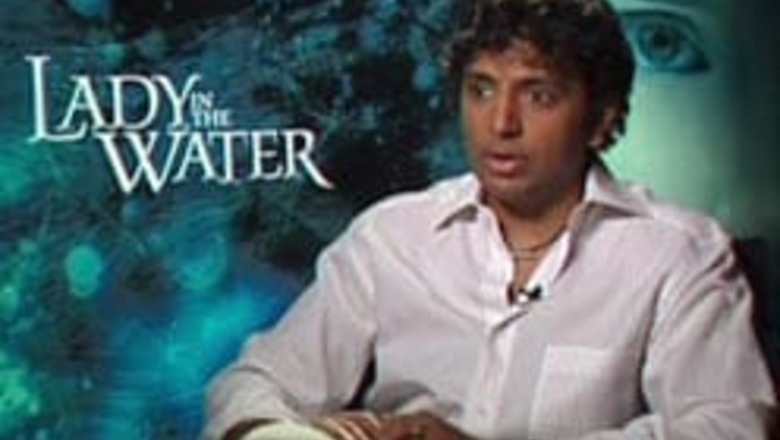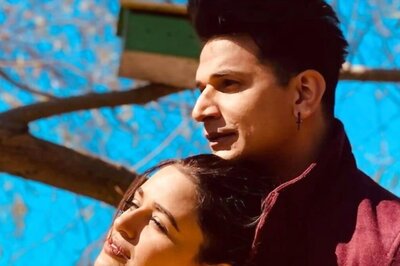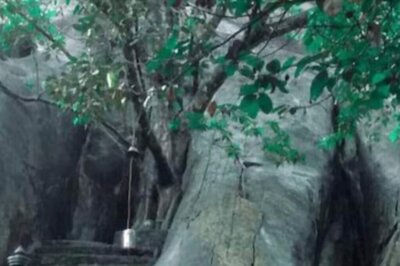
views
New York: Manoj Night Shyamalan is India’s most famous export to Hollywood. And in many ways Shyamalan’s latest film Lady in the Water is similar to our very own masala Bollywood films. And yet, the man who says he has never understood Hindi films insists that it’s his most personal picture yet.
Here is an exclusive interview of the director with CNN-IBN's Entertainment Editor, Rajeev Masand.
Rajeev Masand: Shyamalan, you have said all along actually that this film started off as a bedtime story for your daughters. Have they seen the film and did they feel a sense of ownership to this film because they know that it was a story essentially created for them?
M Night Shyamalan: Yes. It’s been a beautiful time of them growing up to the point that they actually know what I am doing. Even when I made The Village, they didn’t really understand what I was doing for a living. But now they know because they see posters, they see people talk about it, they watch TV and see commercials. And the Lady in the Water story came from both of them and we have been talking about it. So they know everything about the story, everything about the movie and it’s intention.
But they are also at that age when they realise and they say, “That’s what Dad does? He gets to do this?” And I see the realisation blossoming.
Once when we driving down New York, there was a 150-foot poster of Lady in the Water in the middle of Times Square and they were looking up and saying “Oh My God.” It was a great moment because they knew every creature and every single thing in the poster and they knew what it means.
Rajeev Masand: What is it about your writing or about your movies perhaps that reflects your Indian roots?
M Night Shyamalan: The belief in mythologies, as a tool for learning. How we portray so many of our religious mythologies in our architecture. Even the Lady in the Water poster also senses the deedy with all the things around her. It’s probably deeper than I even know.
PAGE_BREAK
Rajeev Masand: And in many ways actually this film asks of its audience that many Bollywood films ask – ‘Just go along for the ride. Don’t question. Don’t ask. Don’t use logic’.
M Night Shyamalan: You are absolutely right. There’s a language to Indian movies that’s intoxicating when it’s done well, which is that you let go of the normal language of watching a movie. It’s not naturalistic. But then you get heightened, you feel emotional, you get swept away because the language is so neon. And in a way I did that kind of a thing in this film.
Rajeev Masand: You have said that you are not very familiar with Indian movies. Your wife watches them, your mother watches them, and even your aunts watch them. Is there a lesson to be learnt perhaps? What is it about Indian movies that it makes them so popular even with Indians who don’t live in India?
M Night Shyamalan: It’s exactly what we just talked about. I remember watching a movie with my wife and I had to keep letting go. No one acts like they do in Indian films in real life. There are huge pushing close-ups. When I am judging whether to do a push in, that’s a move, which means you are feeling tense. And a character only feels that once in a movie. You go close when the ship comes down and the aliens come out. But in Indian movies they do it even when they are in the kitchen and ask, “Do you want breakfast”. They move in five times. But you can’t help it and you have to let go. In a way it seems heightened like you are watching a soap opera, or a Shakespearian play where everything is so big and bold. It is also intoxicating to let go off such tied up situations.
Rajeev Masand: Finally, we have come to expect the ‘twist ending’, that this film apparently doesn’t have. Do you think this is something that will perhaps disappoint people?
M Night Shyamalan: I hope I didn’t do it in Signs which was my second biggest movie. I might make some movies that do have twist endings and some of them don’t. Hitchcock is known for twists. Can you name another movie besides Psycho that had a twist? You can’t. But the poor guy was labeled with ‘twists’ forever. That is what happens when one element takes over another.
Rajeev Masand: Best of luck for your latest movie. Hope we get to see lot more exciting work from you.
M Night Shyamalan: Thank you.




















Comments
0 comment